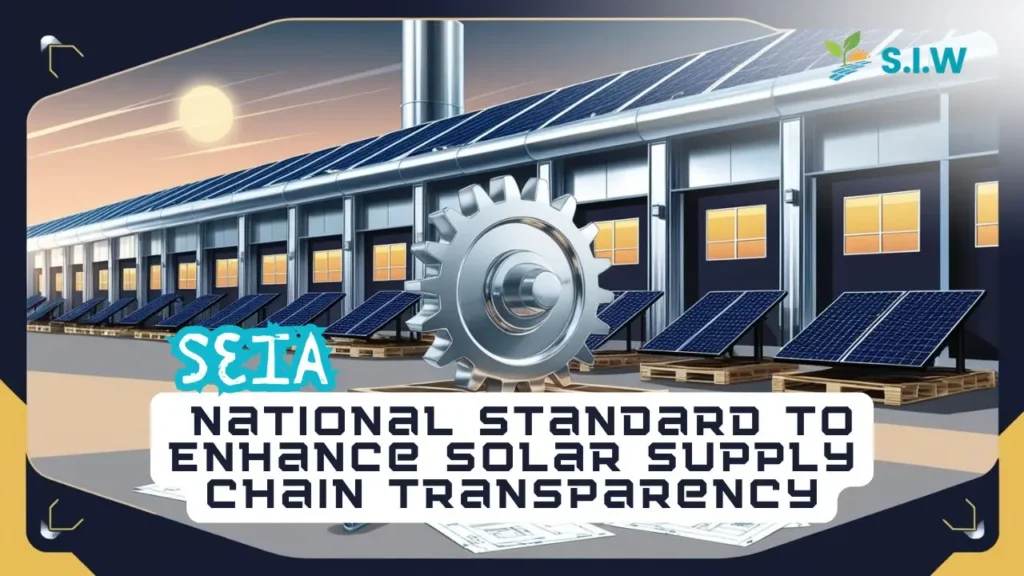The Solar Energy Industries Association (SEIA) recently released a draft for Standard 101, a groundbreaking industry guideline aimed at increasing transparency in the solar and storage supply chain. This new standard is crucial for helping companies comply with U.S. Customs and Border Protection’s (CBP) stringent traceability requirements, ensuring that solar components and products meet both ethical and regulatory standards.
Why Solar Supply Chain Transparency Matters
As the solar industry continues to grow rapidly in the U.S., ensuring a transparent and ethical supply chain is more important than ever. With solar energy projected to account for 30% of U.S. electricity generation by 2030, there is increased scrutiny on where and how solar products are sourced. Recent laws such as the Uyghur Forced Labor Prevention Act (UFLPA) have made it essential for companies to verify the origins of their materials to avoid human rights violations and supply chain issues. In this context, the SEIA Introduces National Standard—SEIA’s Standard 101—helps companies navigate this complex regulatory landscape.
Key Features of Standard 101
Standard 101 is designed to offer a clear rubric for tracing the origins of solar components, from raw materials to finished products. Developed with input from manufacturers, developers, and third-party auditors, this standard provides practical guidelines based on real-world examples of solar shipments that have been detained or released by customs. It focuses on:
- Supply chain mapping: Assisting solar developers and manufacturers in tracking their entire supply chain.
- Certification options: Allowing businesses and products to be certified for transparency, either individually or as part of a company-wide supply chain management system.
- Third-party audits: Once the standard is officially published, SEIA will work with third-party auditors to certify companies that comply with these guidelines.
Broader Industry Impact
Standard 101 is just one part of SEIA’s comprehensive strategy to address long-term challenges in the solar sector. It complements other recently introduced standards like Standards 401 and 201, which regulate solar sales and installation practices. SEIA also plans to release future standards related to operations and maintenance, safety training, and equipment recycling, creating a solid foundation for ethical growth within the industry.
Expected to be fully operational by Q1 2025, the new supply chain standard is now open for public comment, allowing stakeholders to provide feedback and contribute to its final version
Navigating Regulatory Challenges
U.S. solar companies must juggle various trade regulations, including antidumping and countervailing duties, along with adhering to new laws like the UFLPA. Standard 101 offers a comprehensive solution, guiding manufacturers, developers, and installers through this intricate legal framework, and setting the stage for a more transparent and ethical solar industry in the United States. As companies work to comply with these standards, they are also looking for the best commercial solar companies to partner with, ensuring that their supply chains are not only efficient but also responsible and ethical.
Summary
SEIA’s Standard 101 represents a significant step forward for the solar and storage industry, helping companies ensure their supply chains meet the highest ethical and legal standards. With U.S. solar capacity set to expand dramatically over the next decade, these transparency measures will play a crucial role in building public trust and fostering sustainable growth in the clean energy sector.
By adopting Standard 101, solar companies not only improve compliance but also enhance their credibility, positioning themselves as leaders in the renewable energy revolution.








